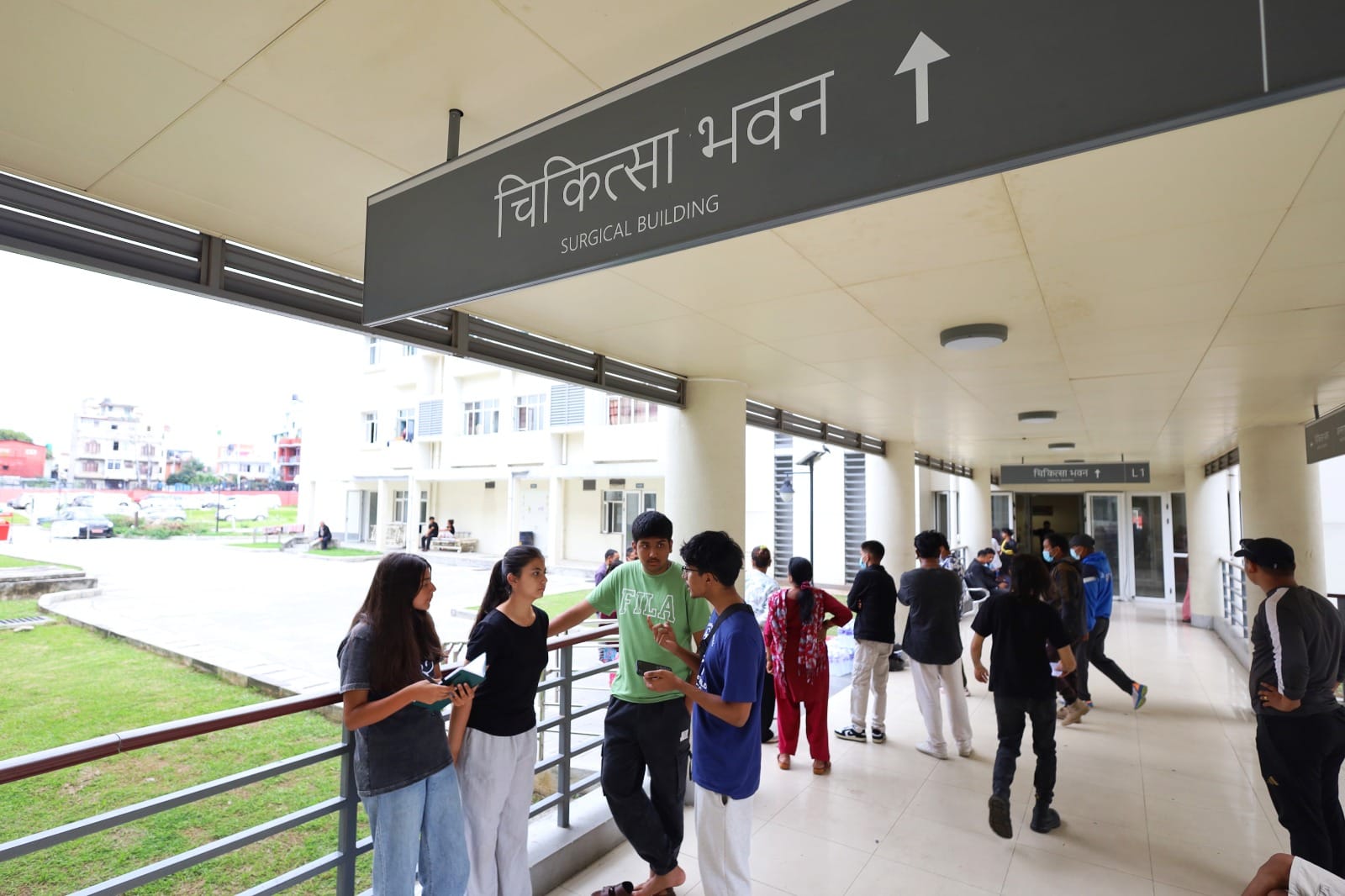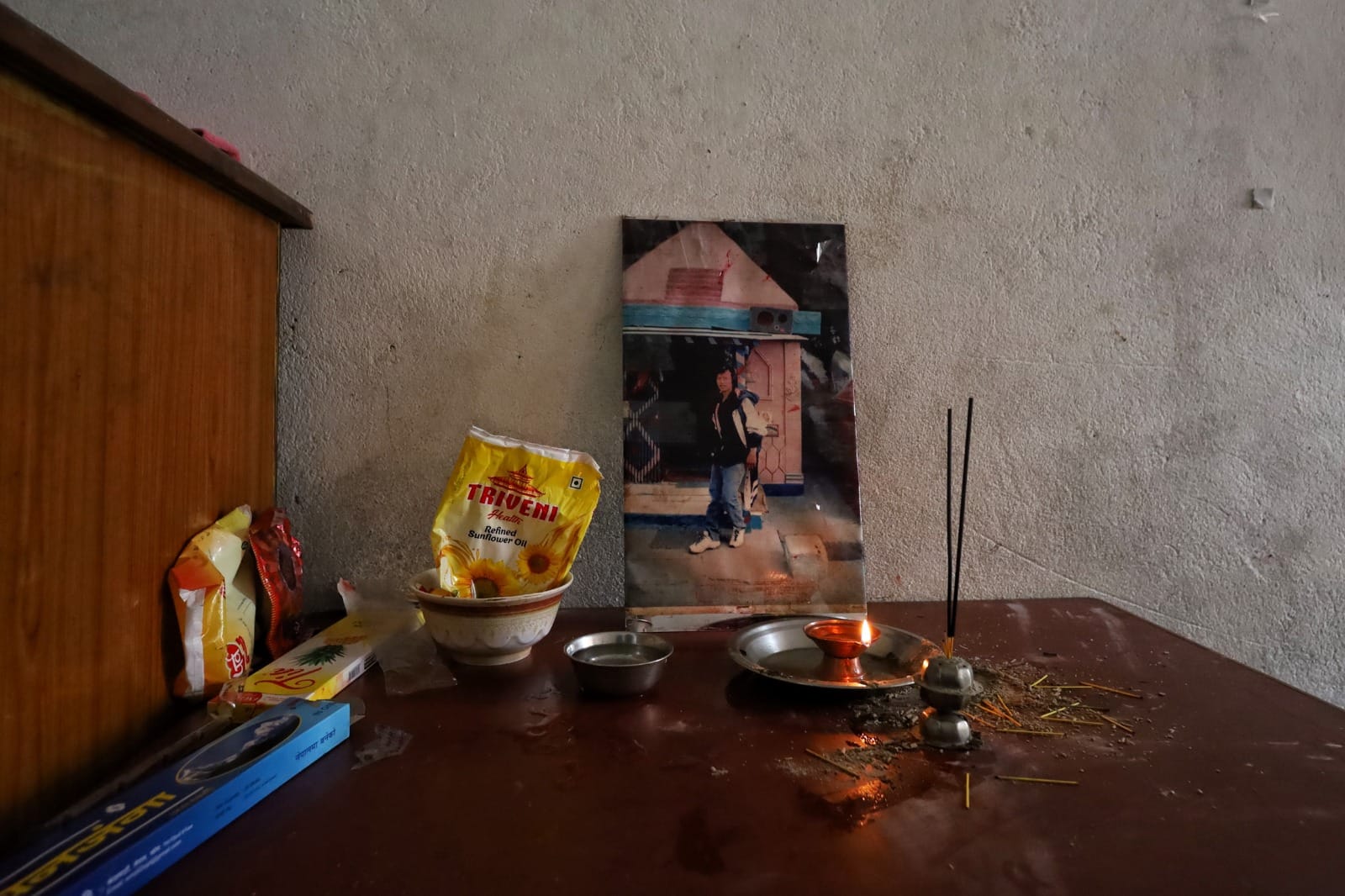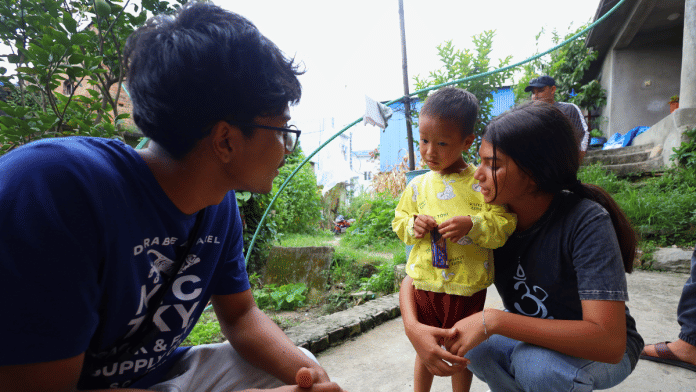Kathmandu: At the Civil Service Hospital in Kathmandu, amid the din of patients and the quiet rush of nurses, five teenagers move through the surgical ward with purposeful calm. They are on a mission: to bring some solace to those who have suffered in the aftermath of the Gen Z-led protests that swept across Nepal, leaving at least 72 dead and more than 1,300 injured.
Their newly formed organisation, Sangam, meaning ‘confluence’, symbolises the coming together of the East and West of Nepal through these five determined teenagers: Shridh Raj Khaniya (17), Apurva Subedi (17), Aarya Subedi (15), Samyah Devkota (15), and Supriya Kafle (15).
Based in Lalitpur city’s Bhaisepati neighbourhood, they started Sangam two days after the protests, driven by a desire to ensure that victims of the political chaos receive both medical and emotional support.
The group took its first big step Sunday. They visited Civil Service Hospital, where they went from bed to bed in the surgical ward, speaking to patients wounded by bullets, assessing their needs and offering support.

It wasn’t easy. Officials wouldn’t let more than one person in at a time. But the teens persisted. “It was super depressing,” Shridh told ThePrint. “I had never seen anything like this. They had bullet wounds all over them.”
Also Read: Orphaned and waiting: A family in Bhaktapur reels under crushing loss after Nepal’s Gen Z uprising
From protest to purpose
The deadly protests that mobilised them originally began as a Gen Z movement, an uprising largely fuelled by young adults in their 20s. What started as a peaceful protest against government corruption and the ban on multiple social media platforms quickly escalated. Though the ban was reversed, the damage was done.
The result was catastrophic: public property like the Supreme Court and Singha Durbar were engulfed in flames, lives were lost, and trust in the government eroded further.
“I remember when Singha Durbar was burning down,” Shridh said. “I remember not being able to contain myself. I thought we needed to do something.”
Since starting Sangam, the teens have been going door-to-door. They have visited around 30 houses so far to raise funds. In just two days, they collected over 1.3 lakh Nepalese rupees, which they are distributing directly to hospitals to cover treatment costs for those who cannot afford care. They’ve already met with four families, and they intend to continue seeking out the most critical cases.

The local response has been overwhelmingly supportive. One neighbour sent Shridh a heartfelt message wishing him strength: “A small financial contribution in support of the brave souls who laid out their lives for political transformation.” It has stayed with him.
While schools remain closed, the teens are juggling online classes with field work, actively stepping out to help, rebuild and ensure that aid reaches the people who need it most.
This isn’t their first brush with activism either. Shridh was involved in the 2023’s flood relief efforts, worked with orphanages, and led multiple fundraisers, all while keeping up with his studies.
His inspiration is Dr Sanduk Ruit, a 71-year-old ophthalmologist who restored sight to over 1,80,000 people across Africa and Asia using small-incision cataract surgery. Shridh dreams of becoming a healthcare professional one day, to make medical care more accessible and affordable for rural communities.
Shridh and Samyah were motivated by their parents, who encouraged them to take the initiative.
They have a community of houses called Sangam, and the volunteer group calls itself Sangam Youth Group. They plan to register their organisation, but two of the volunteers are still underage. In Nepal, one needs to be 16 years old to obtain citizenship. Shridh told ThePrint that they will get the organisation registered because they plan to continue the work.
Also Read: A history of dissent: How a Gen Z revolt brought down Nepal govt in 36 hours
A new generation of patriots
“The government that I envision is one that truly implements the Constitution. Nepal’s Constitution doesn’t have a lot of conflicting issues, but it’s not being followed properly. Roads, properties, everything is mismanaged,” says Shridh. “Nepal is rich in natural beauty and cultural heritage. The government should uplift these.”
Among the few leaders he admires is Kathmandu mayor Balen Shah, a structural engineer who left a potentially lucrative career to serve the country.
“He has built phalchas for people to rest. He made roads. He could have easily chosen a better job, but he chose to serve the country. He’s one of us. While others earn from power, he chose to rebuild,” Shridh says, with conviction.
He also mentions Sushila Karki, the interim prime minister and Nepal’s former chief justice, who he sees as someone who boldly addressed corruption despite immense political pressure. “Even under K.P. Oli, she was speaking up. But they deliberately impeached and threw her out (in 2017).”

Shridh will be able to vote next year. If elections are held soon, Shridh believes Balen Shah has a real shot at leading the nation. “If we don’t vote for Balen, who else? He has done so much as mayor. We should definitely give him a chance to become PM.”
He also praises former energy minister Kulman Ghising as a model for effective leadership. The teenager appreciates the fact that Karki chose him as one of the cabinet ministers.
But Shridh isn’t blind to the betrayals that have come from those he once admired. He once looked up to Shrinkhala Khatiwada, the beauty queen and speaker known for her motivational influence on youth, now a target of the ‘nepo kids’ movement.
“I remember she came as a speaker in our school and I was so inspired by her. She was a rising star, someone to look up to. But she let us down,” he says. “Shrinkhala was given funds meant for rural development, but she never used them. ‘Nepo kids’ are living lavish lives on the taxes we pay.”
He used to like former PM K.P. Oli, but the campaign has changed his perception. He says he has now seen videos of cash stashed in their houses. “Old men shouldn’t be the only ones representing us. Our tax money has been exploited. Now that we know how much money is hidden in their homes, we can’t stay quiet.”
(Edited by Sugita Katyal)
Also Read: Gen Z gets its way: Nepal’s 1st woman chief justice Sushila Karki takes over as interim govt head






